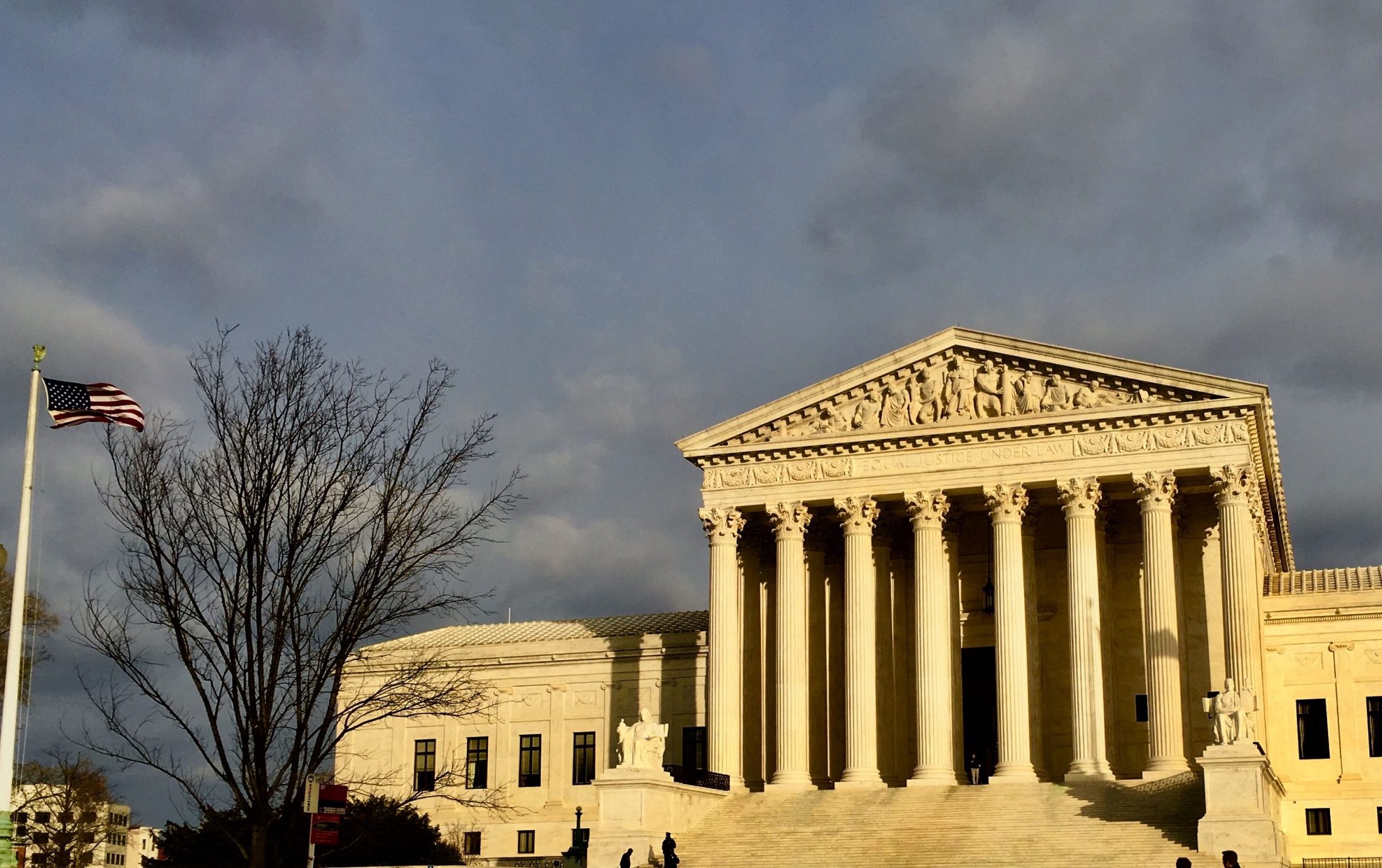CASE PREVIEW
Double jeopardy claim after inconsistent acquittal comes before the court

on Nov 27, 2023 at 12:31 pm

Tuesday’s argument in McElrath v. Georgia will take the justices back to law-school basics – the case could be a question on a law-school examination in criminal law. The facts are simple. Damian McElrath was prosecuted for several crimes after he stabbed his adoptive mother, Diane McElrath, to death in 2012. The case went to trial, where the jury returned a verdict that, among other things, found McElrath not guilty by reason of insanity on a charge of malice murder – the most serious murder charge in Georgia, and the rough equivalent of a first-degree murder charge in most states, requiring the intent to kill someone. At the same time, the jury found McElrath guilty but mentally ill on charges of felony murder (for felonies that result in a death, even if the defendant did not actually kill anyone) and aggravated assault. Now, recognizing that reasonable minds (and jurors) could differ about the quality of a person’s insanity or mental illness at any given time, it is not possible under the applicable definitions for someone at the same time both to be so insane as to be immune from criminal responsibility for a specific act and to suffer from a sufficiently mild mental illness to be criminally responsible for the same act. To be sure, it is possible that the jury wanted to acquit McElrath on the more serious offense and hold him responsible for the less serious offense, but the findings the jury returned did not offer a coherent factual justification for that result. The state courts responded by characterizing the inconsistent verdicts as “repugnant,” vacating both verdicts, and authorizing a second trial on all counts.
McElrath’s argument is as simple as you would expect if you’d ever read any Supreme Court decisions about double jeopardy: Once a jury has acquitted a defendant, the same sovereign cannot ever retry the same defendant for the offense of which the jury acquitted him. Period, full stop. Because that is what happened here, he says, the decision of the Georgia Supreme Court should be reversed.
To be sure, you could say that there is not a case precisely like this one, but McElrath can quote a long line of Supreme Court opinions that state the rule without any apparent qualification. Moreover, as it happens, several of those cases involve inconsistent verdicts, which necessarily reflected (like this one) logically inconsistent factual findings. Although the Supreme Court often validated outcomes that limited the effects of a set of inconsistent verdicts, none of those cases permitted a retrial on a charge for which a jury had rendered a verdict of acquittal, however factually implausible that verdict might have been.
For Georgia’s part, it points to the state’s undoubted right to define its own criminal law and procedural system. Georgia contends – although it doesn’t match very well with what its state supreme court said – that under Georgia law the twin findings of the jury are so “repugnant” that they don’t amount to a verdict at all, but are rather just another step in the trial process that has not yet been completed by a verdict of guilty or not guilty. Because the jury has not yet returned a verdict, Georgia reasons, the double jeopardy rule does not apply.
To my mind, that argument has a little of an Alice in Wonderland feel to it – the word “verdict” means just what Georgia chooses it to mean, no more and no less. So, in this case the state can tell us that in Georgia the word “verdict” does not include the ruling that a jury makes when a foreperson stands up in open court and tells the assembled audience that “We find the defendant not guilty.” Of course, as Humpty Dumpty responded to Alice, the ultimate question is “which is to be master” of the word in the end. My sense is that the justices are likely to think that they are “master” on this particular question and that they will regard the jury’s finding that McElrath is not guilty as the kind of “verdict” to which the double jeopardy protection attaches.


